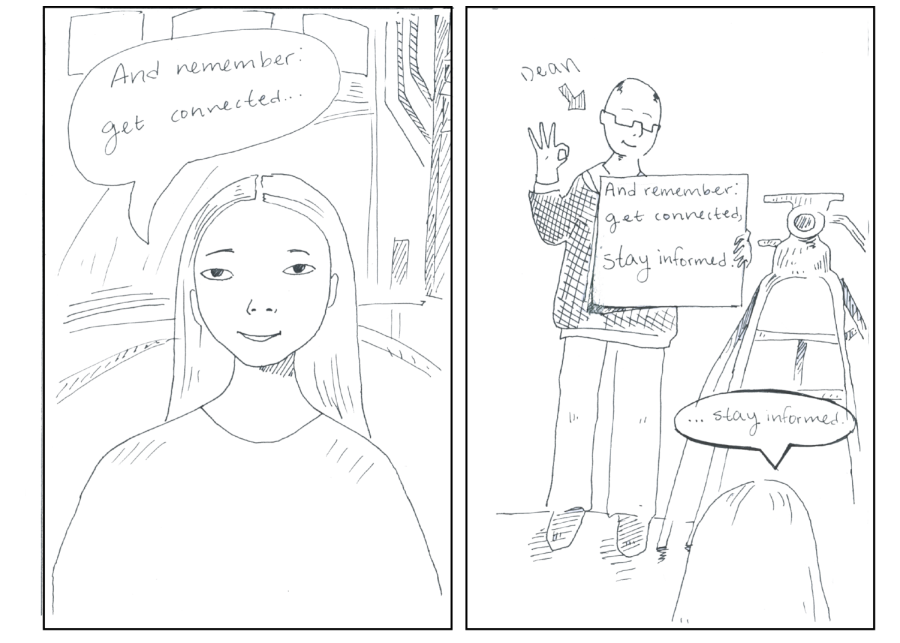Student members of Hawk TV should be allowed to clarify their identity, define their purpose
December 30, 2017
Every September, the Central Times republishes its editorial policy. It takes up about 600 words worth of space and causes either our cartoon, editorial or both to become smaller. Despite certain design restrictions, we’ve always published it, and will continue to do so. In fact, it’s up on our website, too.
In today’s political climate, an editorial policy is especially important. Due to a general hostility towards the press, it’s important to specify how we define ourselves, how we operate, and what we contribute to our community.
As student journalists, we tend to face more restrictions than larger news and media organizations. Over the course of this month, this has become apparent to the Central Times editorial board
We began our reporting on Hawk TV, the producers of our monthly informational video, by investigating claims that our administration exerts a level of influence over the club and its pieces in a manner that could be defined as censorship. But once we weeded through the facts, the only thing that became clear was that Hawk TV’s very identity and purpose are ambiguous.
Is Hawk TV, like the Central Times and Flight yearbook, a student-run, open-forum for student expression? Is it a collective of students who like to make videos who are doing the administration a favor by helping to spread the word
on topics of administrative interest?
We’re still not sure.
Every student in the building is, in effect, required to watch Hawk TV. Students aren’t forced to buy a yearbook or read our paper. Our website is viewable to all students for free, but viewing the site is, again, up to individual choice.
Hawk TV has always addressed itself as “The Redhawk Ramblings on Air,” implying that it is really just a multimedia form of our morning announcements (also known as the Redhawk Ramblings). By this identification, it seems reasonable that there would be some regulation of it. So what to make, then, of times when Hawk TV covers stories about vaping and parking, topics that have never been a part of said announcements? Or what about their commitment to sports broadcasting through their live-streaming of games?
In speaking to a variety of administrators about the role of Hawk TV in our school, we found a surprisingly high level of contradicting information. One dean stressed that Hawk TV was a student-run publication. Others admitted, sometimes begrudgingly and sometimes matter-of-factly, that there is a form of prior review being enforced upon our peers that we, fortunately, are not subjected to, and, because of a new Illinois law, cannot be subjected to.
We’re still left with questions. Is Hawk TV a “student-run publication”? And how do we know if it is or isn’t?
The Central Times editorial board remains unclear about what boundaries exist that control Hawk TV and even members of the group themselves are unsure about the obligations they have to the administration to show content that was “suggested” or whether prior review is administered or justified.
So in the spirit of our love for the First Amendment, we’d like to offer a two-step solution to Hawk TV’s identity crisis.
First, have a student-led conversation about what you are and what you are not. Build a consensus about it, and honor those decisions. Your advisers will support you.
Then, follow the procedures endorsed by every scholastic media organization. Detail your identity in a student-drafted editorial policy. It should explain your role as a student publication, set the boundaries for what is acceptable for publication, and give your viewers a means to communicate with you to respond to your work and address your errors.
We think of Hawk TV as our sister publication, and it meets the criteria for free speech protection under Illinois’ Speech Rights of Student Journalists Act just as the Central Times, Flight and literary magazine do. But you can’t leverage your rights if you don’t know what they are or who you are, and an editorial policy would answer those questions for all of us.







